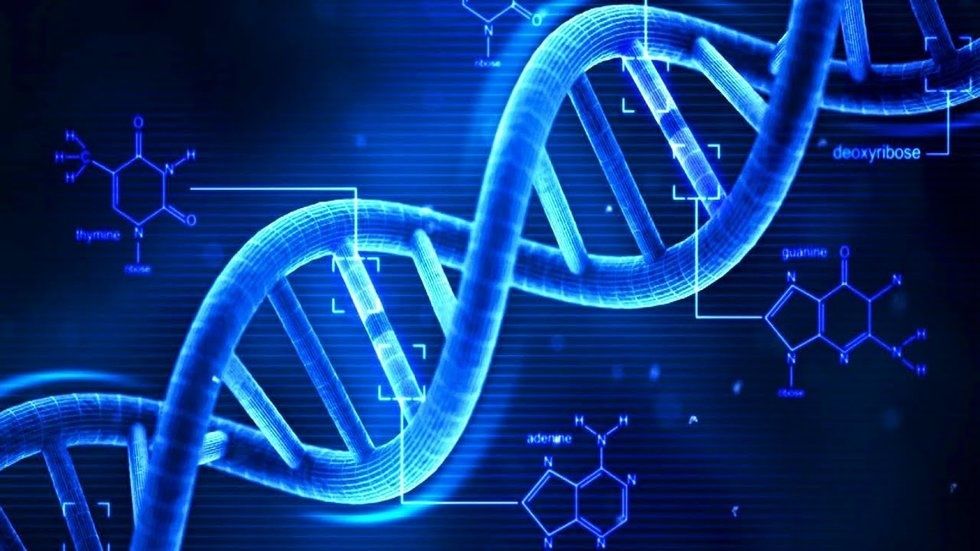The motivation of serial murder is at the center of the nature vs. nurture debate. Do serial killers spawn from a destructive combination of encoded genetic material, or are they the product of a hostile environment and a turbulent past? Society's "fascination of the abomination", drives us to unlock the secret behind the genetic predispositions that perpetuate repeated killings. And yet, the very fabric of our being carries the key…to solving their murders, that is. While we do not yet possess enough knowledge of human DNA to determine for sure if genetic factors contribute to serial murder, we have successfully utilized genetic testing to put these criminals behind bars.
The Golden State Killer Case
In April, the arrest of Joseph DeAngelo, the "Golden State Killer", sparked controversy regarding the use of DNA evidence to link DeAngelo to the crimes he committed. Since 1994, the FBI has used CODIS (Combined DNA Index System) to record DNA samples of criminals into a database. Even though this system has sparked breakthroughs in solving cases, it is limited to comparing a suspect's DNA sample to a number of DNA samples previously submitted by convicted offenders. This system, though successful, completely bypasses first time offenders - thus eliminating an entire population from being investigated. If a case were to go cold, police would have to rely on revisiting key elements of that case until the missing piece of the puzzle turned up… until now.
How A Family Tree Led Police To The Killer
DeAngelo's conviction was made possible by the use of a program created by Parabon-Nanolabs, a private DNA analysis service. It was only until this joint effort that law enforcement officials were able to match the DNA of a relative of DeAngelo to similar DNA found at the site of the murders. And yes, you read that correct – police used the DNA of a relative to trace the lineage back to the Golden State Killer. According to Parabon-Nanolab's website:
"Our genetic genealogy service is somewhat like familial search, but it differs in very important ways. We only search public genetic genealogy databases, not government-owned criminal (STR profile) databases, such as CODIS."
The advancement of genetic technology is not exclusive to the Golden State case. A similar breakthrough led police to convict the murderer of eight-year-old April Tinsley who had been killed in 1988. Much like the genetic trail that led police to arrest DeAngelo, investigators tracked down a relative of the killer who shared genetic similarities with the DNA found at the crime scene. By tracing the relative's lineage, law enforcement successfully found John D. Miller, the man who killed April Tinsley.
Your DNA Can Be Accessed By Police
Specifically, the "public genealogy database" used in both the Golden State and April Tinsley cases was GEDmatch, a site where people self-report their genealogy records obtained from companies like Ancestry and 23andme. Hopefully, you read the terms and conditions before you spit in the tube because what transpired here is completely legal. But, before you castigate your family members for trying to gain insight into their ancestry, know that the genealogy services will not give away your DNA records to any third parties that ask. In both cases, police used DNA records that people willingly uploaded to the GEDmatch site, which comes with its own stipulations on the use of the information that users provide.
Whether you agree with the legality of how this genetic evidence was obtained or not, most of us can agree that we are living in an age of unprecedented growth. Scientific advancements and technological developments are the driving forces behind heightened knowledge. As we continue to explore how DNA influences identity, we can begin to solve some of life's unanswered questions.
- DNA And Heritage - How A Simple Test Completely Changed The ... ›
- 10 Important Questions Black Mirror's 'USS Callister' Will Make You ... ›
- Ending The Golden State Killer's Reign Of Terror ›
- Police Can Now Take Your DNA After Any Arrest | Smart News ... ›
- Consumer genetic databases aren't the only side door for police to ... ›
- Took a ancestry DNA test? Here's what you should know about privacy ›
- How Police Use the Only Thing You Can't Change: Your DNA | The ... ›
- Police can legally use 23andMe, other ancestry tools to obtain your ... ›
- How the Police Can Use Your DNA against You - Liberty Law ›
- Is your DNA in a police database? ›
- Golden State Killer: Can police get your DNA 23andMe, Ancestry.com ›








































